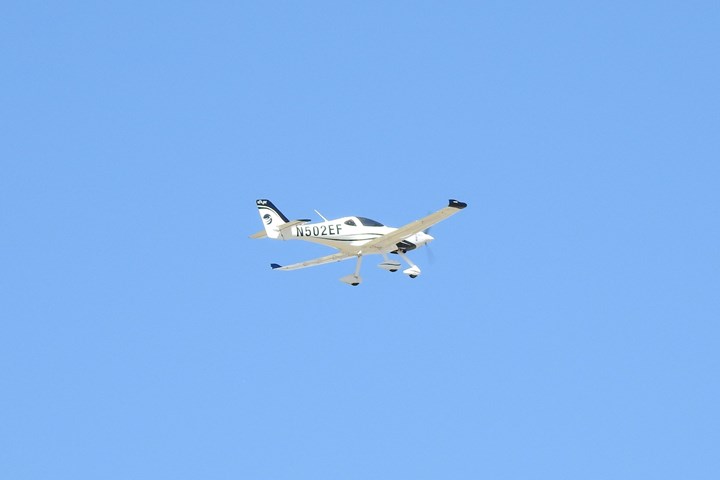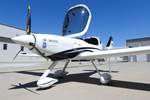Bye Aerospace closes $10 million in funding
The investments have enabled the company to work on Serial #001, the first production-conforming prototype of its two-seat eFlyer 2 aircraft.

Source | Bye Aerospace
(Denver, Colo., U.S.), developer of the FAA FAR 23-certified all-electric eFlyer aircraft, announced on July 13 the completion of a $5 million strategic investment by a venture capital group earlier this year. The successful investment was soon followed by the completion of a $5 million venture raise, reaching $10 million in total funding. George E. Bye, CEO of Bye Aerospace, says the investments have allowed the company to begin work on Serial #001, the first production-conforming prototype of its two-seat eFlyer 2 aircraft.
“Electric flight is the future of air travel, and even more so now following the coronavirus outbreak, especially as the demand for affordable, smaller, greener aircraft increases. We are seeing more investors recognize the vision of Bye Aerospace as a leader in this sector,” notes Chrysanthe Gussis, a Bay Area green tech investor, finance expert and a member of Bye Aerospace’s strategic advisory board.
Bye notes that although the two financial transactions successfully closed during coronavirus restrictions, much of the due diligence and planning was completed before the COVID-19 pandemic escalated. “Since raising the $10 million, we have completed critical design review in early June and are now underway with multiple test flights of the eFlyer 2 technology demonstrator,” he says. “Next, we will be solidifying our supply chain relationships to begin assembly on Serial #001.”
Previously, in late 2018, Bye Aerospace completed a major investment by SUBARU-SBI Innovation Fund, a joint venture between Subaru and SBI Investment Co. (Tokyo, Japan).
Related Content
-
JEC World 2024 highlights: Glass fiber recycling, biocomposites and more
CW technical editor Hannah Mason discusses trends seen at this year’s JEC World trade show, including sustainability-focused technologies and commitments, the Paris Olympics amongst other topics.
-
All-recycled, needle-punched nonwoven CFRP slashes carbon footprint of Formula 2 seat
Dallara and Tenowo collaborate to produce a race-ready Formula 2 seat using recycled carbon fiber, reducing CO2 emissions by 97.5% compared to virgin materials.
-
Trends fueling the composites recycling movement
Various recycling methods are being considered for composites, from novel dismantling and processing, to building capacity and demonstrating secondary use applications.



